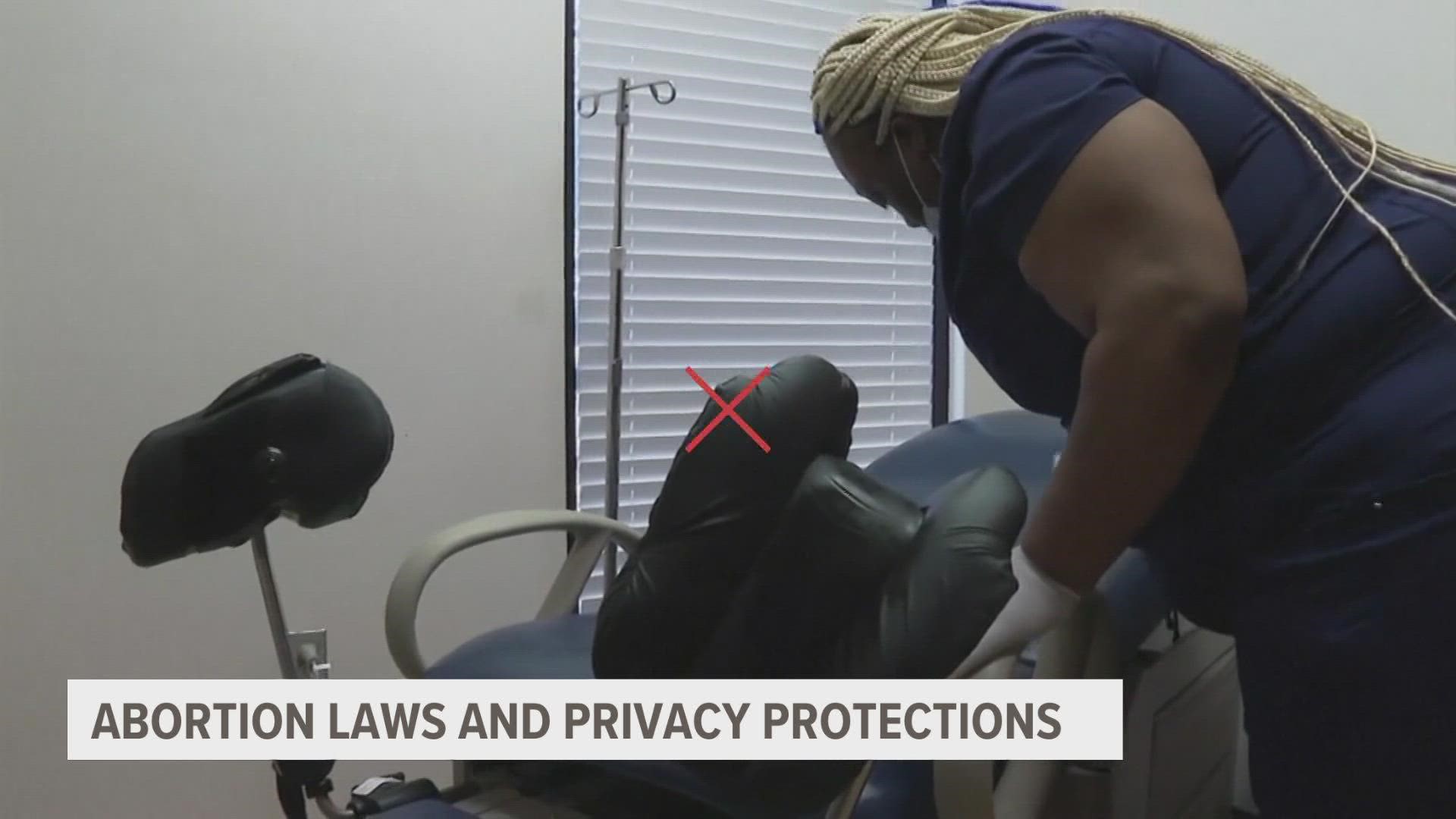MUSKEGON, Mich. — In the wake of Friday’s Supreme Court decision, a number of viewers have reached out regarding privacy concerns.
Most wondered how abortion-related prosecutions would work in practice, given that medical records are protected under state and federal law.
THE QUESTION:
“Why would HIPPA (a federal law) not keep ANYONE from knowing whether or not someone is having an abortion? Doesn't HIPPA protect a woman's right to privacy?”
-Peg, Portage
OUR SOURCES:
- MCL 750.14, Michigan’s 1931 abortion statute
- The HIPPA Guide
- The Michigan Supreme Court
- Levine & Levine Attorney Anastase Markou
- Kent County Prosecutor Christopher Becker.
THE RESULT:
No, protections like HIPPA don’t always apply, but that’s evaluated on a case by case basis using a test to determine the need for the records in question.
Experts also acknowledged trying abortion providers under the 1931 law had no modern precedent – meaning the several few court cases may hold an outsized influence on how similar cases are tried moving forward.
WHAT WE FOUND:
In a Monday media release, Kent County Prosecutor Christopher Becker noted:
“To dispel any confusion about the law/ MCL 750.14, does not allow for charges to be filed against the woman seeking or getting an abortion. It only allows for charges to be filed against a doctor performing an abortion.”
Though experts said there were several gray areas embedded within the statute which would require further clarification, namely, how the courts should view use of drugs like Plan B and whether confirmation of an active pregnancy would first be required.
What about privacy protections for those who do receive an abortion?
As the question suggested, patient medical records are typically sealed under federal law (HIPPA) or state-level safeguards governing confidential healthcare information.
“The reality is every patient… has the right to privacy,” Markou explained.
If a patient’s doctor, however, were charged with a crime, including under the 1931 law, experts acknowledged that, in most cases, patients could rely upon a certain level of protection.
Though, there is a chance relevant records could be admitted as evidence in court.
“That particular question is not one that’s easily addressed,” he said. “Courts have to apply a test or a standard in Michigan. Weighing the right to privacy, the right to confidentiality against the need for the record.”
In the vast majority of cases, patients must first agree to waive their right to privacy.
The HIPPA Guide also noted that any determination as to whether providers must comply with any subpoena or court order may also depend upon the issuer, whether it be a judge, an attorney or a court clerk.
If the subpoena is valid, the patient retains the right to fight the records release, unless the provider decides to oppose the subpoena in writing.
►Make it easy to keep up to date with more stories like this. Download the 13 ON YOUR SIDE app now.
Have a news tip? Email news@13onyourside.com, visit our Facebook page or Twitter. Subscribe to our YouTube channel.

